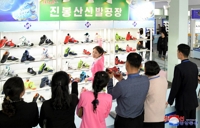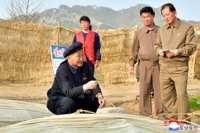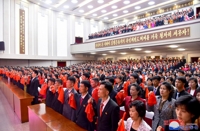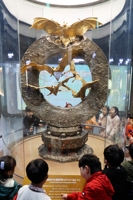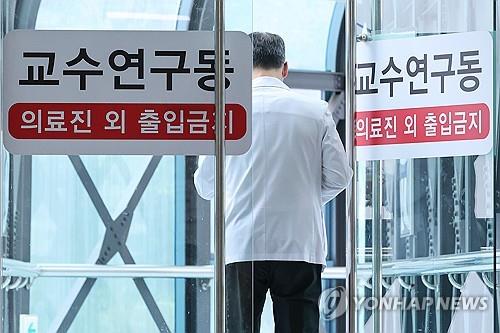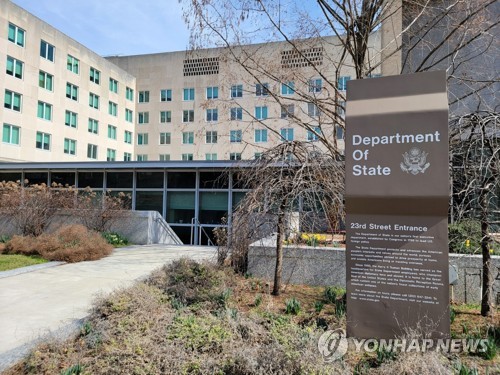(News Focus) Biden makes little headway with N. Korea, still willing to make progress: experts
By Byun Duk-kun
WASHINGTON, Jan. 13 (Yonhap) -- President Joe Biden may have seen little or no progress with North Korea during his first year in office, but his government stands ready and well-equipped to make progress if and when North Korea returns to dialogue, U.S. experts said Thursday.
They also argued the ongoing stalemate in U.S.-North Korea dialogue was largely caused by North Korea's boycott and not the U.S.' inaction.
"I think the Biden administration has clearly messaged publicly and privately an interest in re-engaging," said Victor Cha, noting the administration has also vowed to build on the 2018 joint statement issued at the end of the first-ever U.S.-North Korea summit in Singapore.
Under the Singapore agreement, the U.S. agreed to normalize relations with the North while Pyongyang reaffirmed its commitment to the complete denuclearization of the Korean Peninsula.
"It takes two to tango," Cha said, referring to North Korea's ongoing ignorance of U.S. overtures. "I think the North Koreans are not ready because of COVID and have been waiting to see if Biden would unilaterally lift some sanctions, which the administration will not and should not do without corresponding measures."
Cha is a former director of the White House National Security Council for Asian affairs. He currently serves as the Korea chair and senior vice president of the Washington-based Center for Strategic and International Studies think tank.
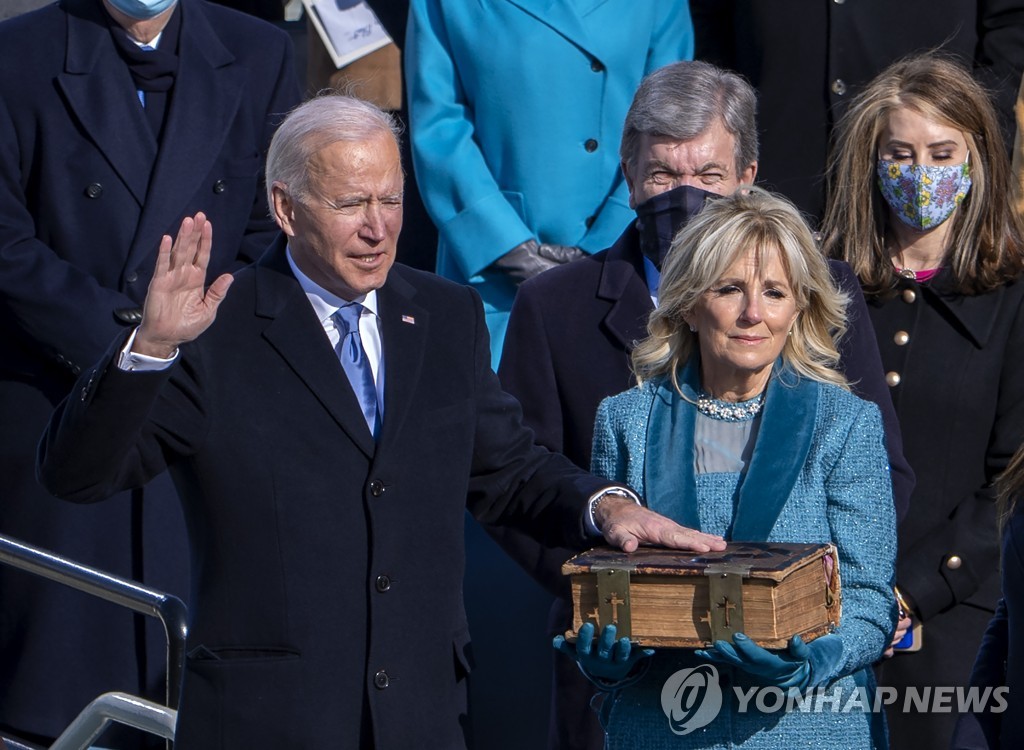
President Joe Biden (L) is sworn in as the 46th president of the United State in the inaugural ceremony at the Capitol in Washington in this UPI file photo, taken Jan. 20, 2021. (Yonhap)
There has been no direct engagement between Washington and Pyongyang since Biden took office nearly a year ago on Jan. 20. North Korea has also stayed away from denuclearization negotiations since late 2019.
Many have argued the Biden administration may have put the North Korea issue on the back burner while dealing with other more pressing issues, such as its growing competition with China and, more recently, the Russian military buildup along the border with Ukraine.
Sue Mi Terry, director of the Hyundai-Motor-Korea Foundation Center at the Wilson Center, said the U.S. may have done all it could to engage with North Korea.
"The Biden administration has repeatedly said they are willing to meet with the North Koreans at any time without preconditions, but Kim Jong-un has shown no interest in meeting. I don't believe the administration realistically could have done more," she said.
Frank Aum, a senior expert on Northeast Asia at the U.S. Institute of Peace, a state-run institution based in Washington, also blamed North Korea for refusing to engage with the U.S. but insisted the U.S. still could have done more.
"The Biden administration has done the bare minimum for trying to engage with North Korea," he said. "Instead, the Biden administration could have announced a bold peace offensive with North Korea that includes unilateral confidence-building measures."
Aum said such measures could include COVID-19 vaccine assistance, loosening restrictions on humanitarian aid to North Korea, and declaring a moratorium on the deployment of U.S. strategic and nuclear assets to the Korean Peninsula, none of which, he said, "undermine U.S. security or cross any redlines the Biden administration has set out."
The experts also insisted the U.S. has enough resources to deal with North Korea while still being engaged in other and more pressing issues, should the North be willing to come to the table.
"Contrary to popular opinion, the U.S. government can walk and chew gum at the same time. That is, it can handle more than one foreign policy issue at a time and is always doing so," Cha said.
"There is a tendency to always look to the U.S. to 'make something happen.' But in this case, the North is the one putting the U.S. on the back burner as it deals with COVID," he added.
Bruce Klingner, senior research fellow at the Washington-based Heritage Foundation. said the U.S. is always focused on North Korea even when it may not appear to be doing so.
"While President Biden, like his predecessors, may not have North Korea on the top of his daily agenda, there are officials throughout the administration focused on the regime," he told Yonhap.
"Given North Korea's rejection of diplomatic dialogue, President Biden is focused on other crises and issues. But, if North Korea either indicated a willingness to negotiate or conducted a major provocation, it would certain move to the forefront of the president's attention," he added.
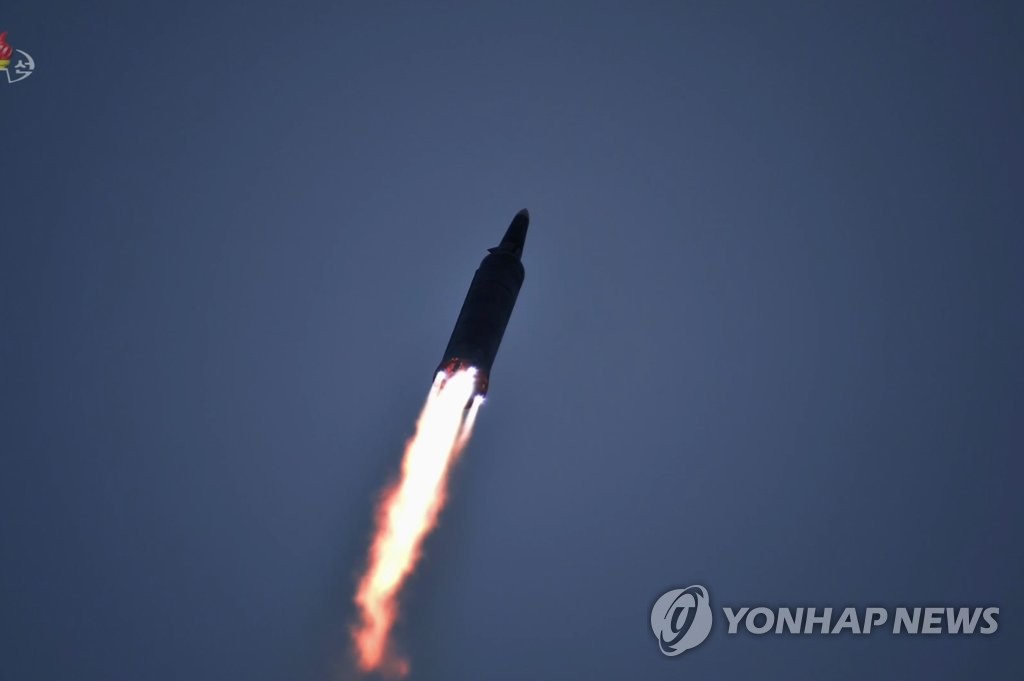
This photo, released by North Korea's official Korean Central Television on Jan. 12, 2022, shows what the North claims to be a new hypersonic missile being launched the previous day. (For Use Only in the Republic of Korea. No Redistribution) (Yonhap)
U.S. officials said the North had remained unresponsive to U.S. overtures as of Tuesday.
The North has instead launched two ballistic missiles since the beginning of this year in what it claims to have been successful test fires of a newly developed hypersonic missile, quickly drawing the attention of the U.S.
The U.S. last week imposed sanctions on six North Korean representatives based in Russia and China for illegally procuring materials for the North's weapons programs. It says it has also proposed additional U.N. Security Council sanctions against the North.
Aum said U.S.-North Korea dialogue could take place as soon as tomorrow if North Korea were willing.
"Washington has had to triage global crises and focus on the most urgent areas, which over the year has included China, Myanmar, Russia, Afghanistan, Kazakhstan, the Middle East, among others," he said. "This being said, if North Korea were willing to come to the negotiating table tomorrow, Washington has the resources and willingness to engage."
The experts were skeptical over the idea of Biden signing an end of Korean War declaration proposed by South Korea's Moon Jae-in administration as a "catalyst" to restart dialogue with North Korea.
"Preemptively giving North Korea concessions doesn't make any sense (such as the peace declaration that the Moon administration has pushed for or unilateral sanctions relief) for the Biden administration," Terry said.
Cha argued the U.S. has already given more security assurances to North Korea than it has to any other country.
"The U.S. has provided many statements of non-hostile intent to North Korea. In fact, I'm pretty certain that North Korea is the only U.S. non-ally that has received many explicit statements of peace and security assurances in the world. I do not believe that another one will be the golden key that brings North Korea to the table ready to negotiate denuclearization," he said.
"The peace declaration has always been a part of the process, coming as denuclearization and threat reduction is implemented. It does not come at the beginning," he added.
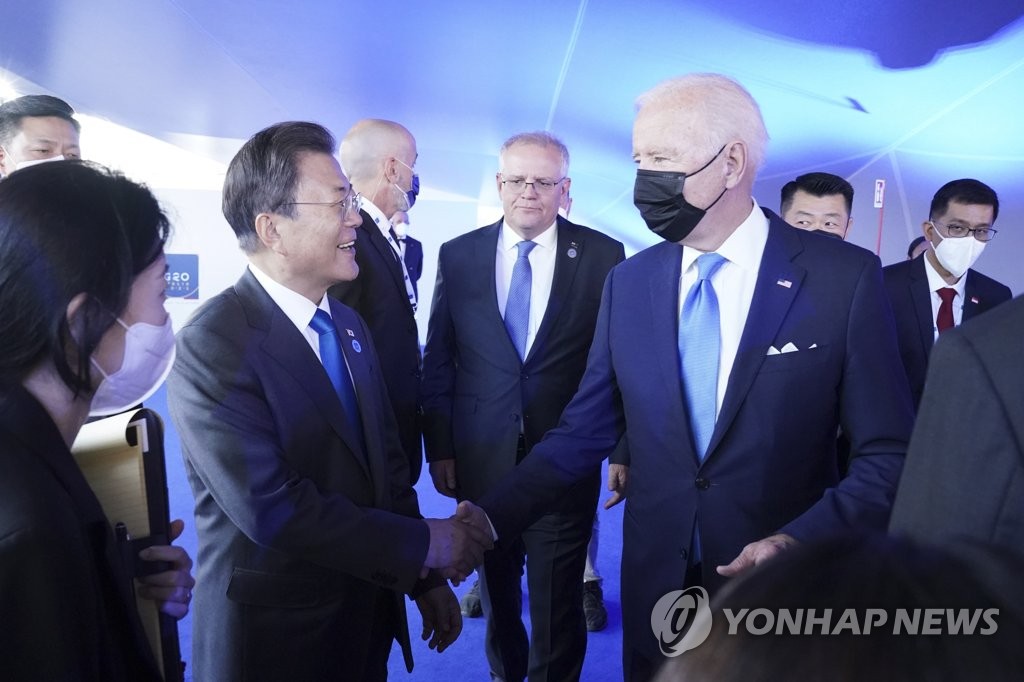
This file photo, taken Oct. 30, 2021, shows President Moon Jae-in (L) talking with U.S. President Joe Biden on the sidelines of the G-20 summit in Rome. (Yonhap)
Aum agreed an end of war declaration should come as part of a broader denuclearization package.
"I think the Biden administration would be willing to sign an end of war declaration with North Korea if the declaration includes language that prevents premature elimination of the Armistice Agreement and the United Nations Command, and if the declaration is packaged as part of a broader peace process that includes North Korea coming back to the negotiating table and both sides committing to reciprocal confidence-building measures," he said.
Klingner noted an end of war declaration envisioned by Seoul and one that is acceptable to Washington may be different.
"While Moon seeks a simplistic end of war declaration simply as an upfront inducement to get North Korea to talk, the U.S. instead believes that a permanent resolution to the Korean War should be part of a comprehensive denuclearization agreement."
bdk@yna.co.kr
(END)
-
 Ateez member Yunho throws first pitch at MLB match between Dodgers, Mets
Ateez member Yunho throws first pitch at MLB match between Dodgers, Mets -
 Gov't likely to accept university chiefs' request to lower med school enrollment quota
Gov't likely to accept university chiefs' request to lower med school enrollment quota -
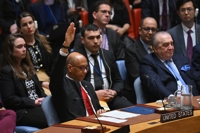 S. Korea supports resolution backing U.N. membership of Palestine
S. Korea supports resolution backing U.N. membership of Palestine -
 Chinese man behind drug scam targeting teens nabbed in Cambodia
Chinese man behind drug scam targeting teens nabbed in Cambodia -
 S. Korea, U.S. to hold 1st round of defense cost sharing talks this week
S. Korea, U.S. to hold 1st round of defense cost sharing talks this week
-
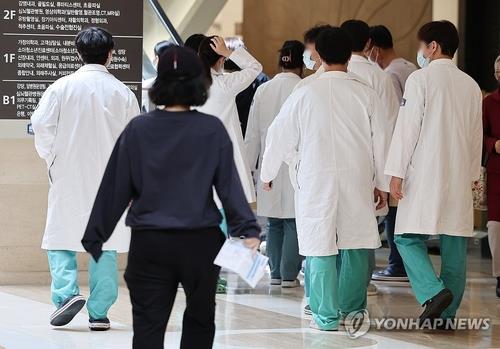 Gov't likely to accept university chiefs' request to lower med school enrollment quota
Gov't likely to accept university chiefs' request to lower med school enrollment quota -
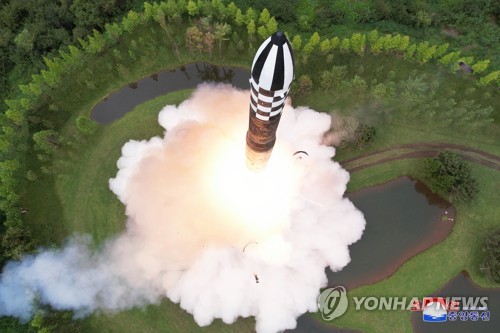 Experts see possibility of N.K. conducting nuclear test before U.S. presidential vote
Experts see possibility of N.K. conducting nuclear test before U.S. presidential vote -
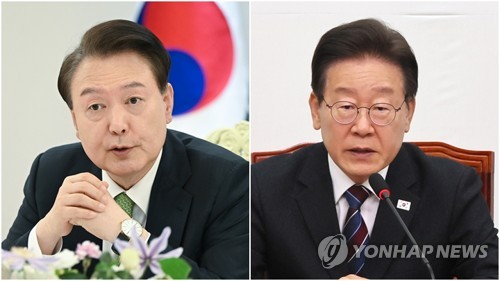 Details of meeting between Yoon, opposition leader undecided: presidential office
Details of meeting between Yoon, opposition leader undecided: presidential office -
 Looming weekly closure of major hospitals feared to worsen medical service crisis
Looming weekly closure of major hospitals feared to worsen medical service crisis -
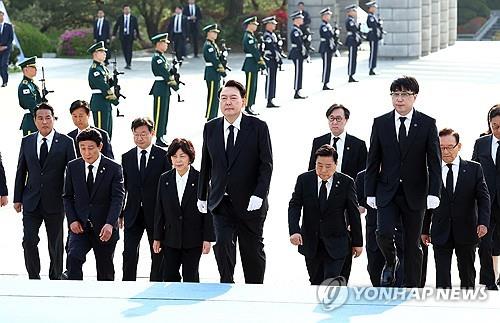 Yoon's approval rating sinks to lowest point since taking office
Yoon's approval rating sinks to lowest point since taking office
-
 (LEAD) Hybe to file complaint against sublabel executives over internal conflict
(LEAD) Hybe to file complaint against sublabel executives over internal conflict -
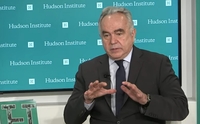 U.S. will take steps for three-way engagement on nuclear deterrence with S. Korea, Japan: Campbell
U.S. will take steps for three-way engagement on nuclear deterrence with S. Korea, Japan: Campbell -
 S. Korea reports highest suicide rate, ultra fine dust level among OECD nations: data
S. Korea reports highest suicide rate, ultra fine dust level among OECD nations: data -
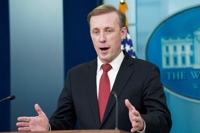 U.S. sent ATACMS missiles to Ukraine following Russia's use of N.K. missiles: White House
U.S. sent ATACMS missiles to Ukraine following Russia's use of N.K. missiles: White House -
 (3rd LD) Hybe to file complaint against sublabel executives over internal conflict
(3rd LD) Hybe to file complaint against sublabel executives over internal conflict















